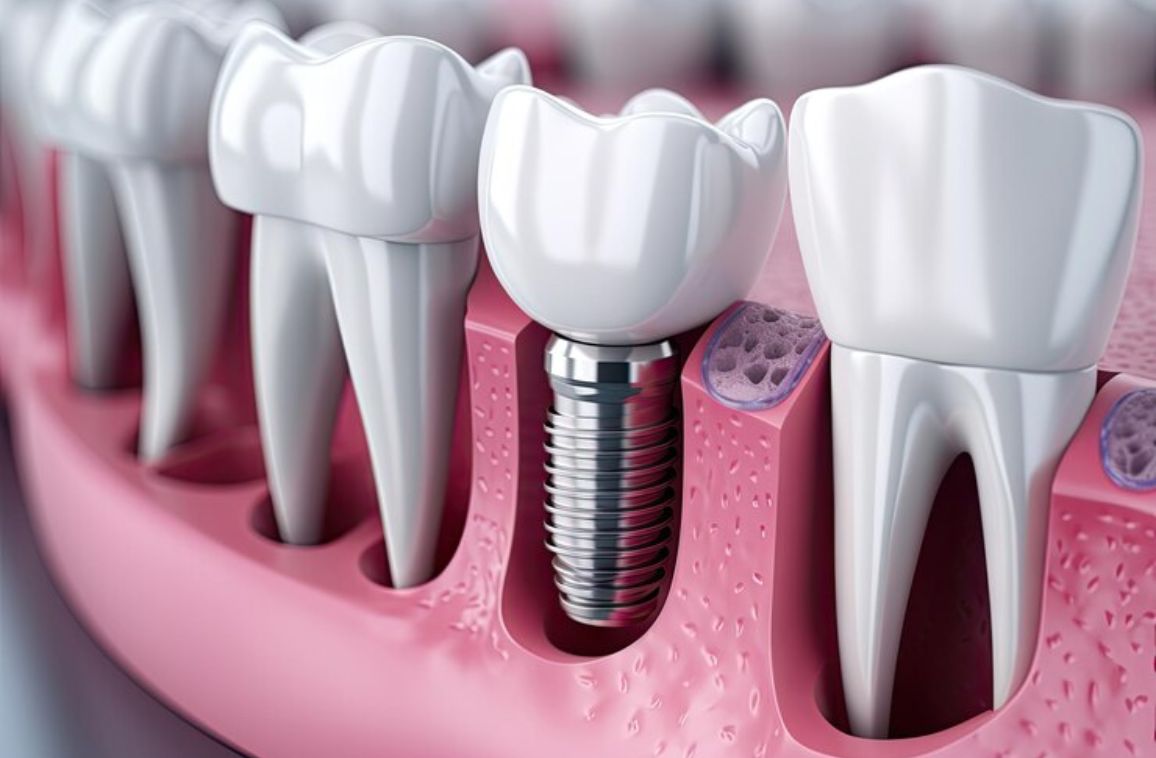Dental Implants Changing Oral Health
Dental implants are of course made to look, feel, and also function like natural teeth. They do indeed offer several benefits, as they tend to contribute to the improvement of one’s oral health and also enhance appearance.
Several people do choose to get dental implants, as the procedure can rather improve the ability to chew and speak and help preserve or restore the appearance of facial structure.
A dental implant is indeed an artificial replacement for the root of one’s tooth. It does screw into the jawbone and supports a fake tooth (crown). It has several benefits, but not everyone is suited for implants.
Dental implants are installed surgically while your mouth is numbed with a local anesthetic. The surgery itself takes about 90 minutes, but the whole process might take as long as 6 to 12 months because you usually need multiple dental appointments.
Dental implants can rather provide a natural-looking as well as a natural-feeling replacement for a missing tooth that does last for several years. They can be more expensive than the alternatives and cannot be suitable for people who cannot undergo dental surgery.
Benefits of dental implants
Dental implants are very durable and replicate the look and feel of a natural tooth when covered, of course, with a crown. They do offer several benefits over available alternatives.
Durability
The gold standard for treating missing teeth happens to be a titanium dental implant. Dental implants can indeed last longer than alternatives. They do last for about 10 years.
Prevents bone loss
Dental implants can help prevent bone loss that does occur after the person loses a tooth.
Studies have shown that fairly a large percentage of the alveolar ridge is lost after tooth loss. The alveolar ridge is the part of one’s jawbone that does contain one’s tooth socket. Most bone loss does occur in the first 6 months.
In a review of studies, researchers noticed evidence that implants seem to have a noticeable effect on alveolar ridge preservation by lowering the rate of bone resorption.
Resorption happens when a substance, like bone, is destroyed before the body absorbs it.
Natural look cum feel
A dental implant does act as an artificial root for one’s tooth. Dentists can place a crown on the top of the implant that helps mimic the look and feel of a natural tooth and can make a person feel more comfortable than alternative treatments like dentures of their implant.
Keeps adjacent teeth stable
When missing a tooth, the surrounding teeth can indeed migrate toward the gap and also cause problems with one’s bite and ability to chew. An implant can indeed fill the gap between one’s teeth and keep up the health of the surrounding teeth by preventing them from drifting.
Restores the cosmetic appearance of one’s face
Jawbone loss after losing a tooth or teeth can cause reshaping of one’s face. It might lead to changes such as:
- Sagging skin.
- Collapsed cheeks.
- Sunken appearance.
- Bite misalignment.
Facial changes are most noticeable if missing several teeth. Dental implants can prevent such changes by helping keep the structural integrity of the jaw and thus prevent bone loss.
Behaves like natural teeth when speaking and also chewing
A dental implant more closely mimics one’s natural teeth when chewing than traditional dentures or perhaps bridges. It also helps preserve speech patterns by filling holes in one’s teeth that cause changes to the way air passes via one’s mouth when talking.
Over-dentures are rather false teeth that do attach to an implant (or multiple implants) but are removable.
An implant-supported denture is another term for overdenture.
Restores bite force
Researchers noticed that implant-supported overdentures of the lower jaw increase biting force compared with traditional dentures.
Improves quality of life
People who received implant-supported overdentures could increase their quality of life with limited risks and also high rates of implant survival.
Conclusion
The ideal candidate for dental implants is a person having good overall dental health and a missing tooth or even a tooth that needs to be extracted.



